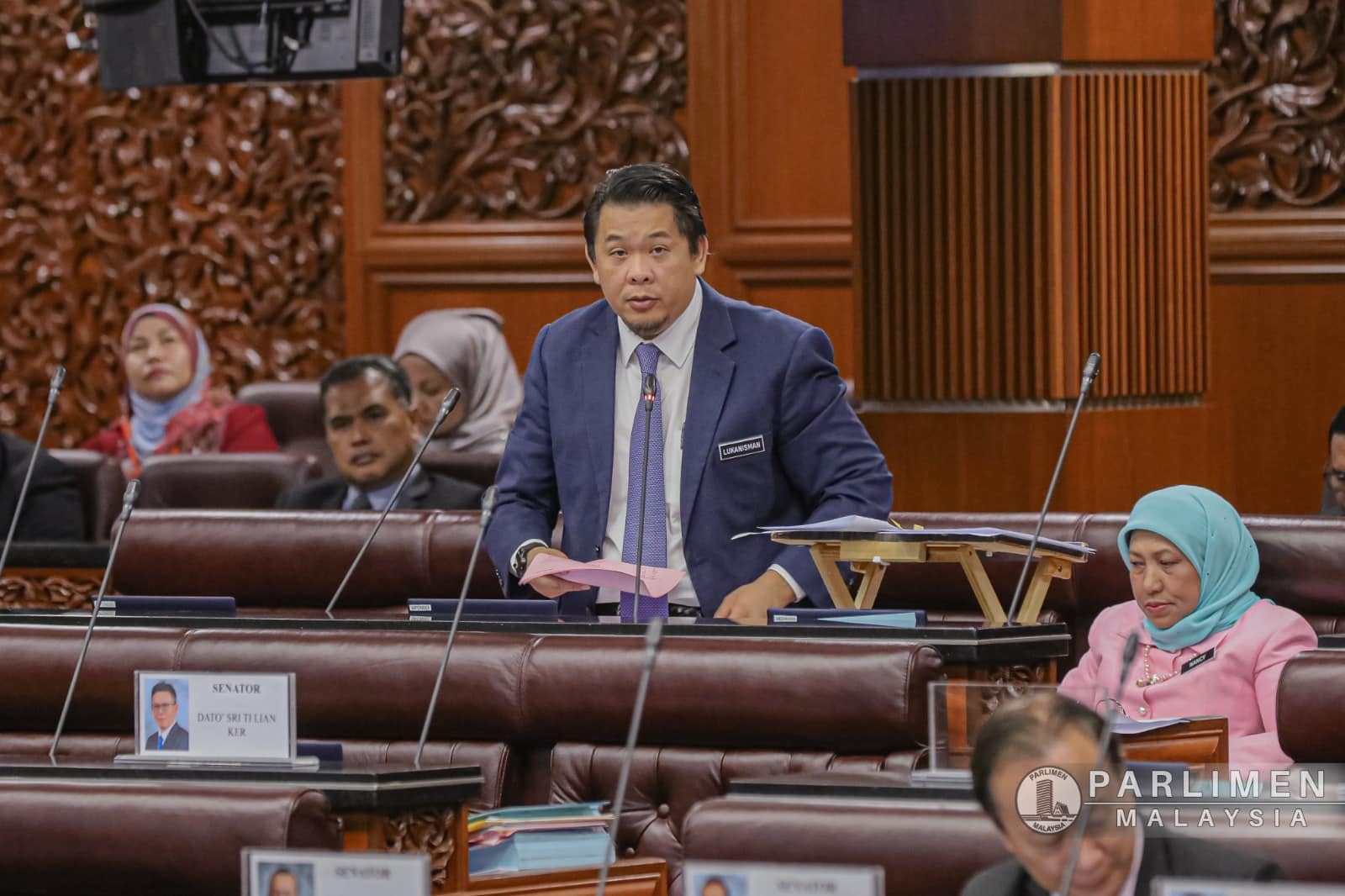KUALA LUMPUR, Dec 13 – Lukanisman Awang Sauni today not only acknowledged the high workload on government doctors, but also that medical officers’ weekend on-call allowance is only RM9 hourly.
The deputy health minister made the rare acknowledgement during Question Time in Dewan Negara, after Dzulkefly Ahmad replaced Dr Zaliha Mustafa as health minister in a Cabinet reshuffle yesterday.
Answering Senator Dr Hatta Ramli, Lukanisman said the Ministry of Health (MOH) has submitted a request to raise medical officers’ weekend on-call allowance to the Public Service Department’s (JPA) Review of the Public Service Retirement System (SSPA).
“The on-call rate was raised in 1994, 2001, 2005, and 2012. If we see, from 2012 to 2023, it’s been almost 11 years that the allowance hasn’t been raised,” Lukanisman told the Dewan Negara.
“We find that this issue has been frequently raised, not just in engagement sessions, but also on social media where discomfort has been expressed by public servants and officials, especially medical officers.”
Lukanisman also said that despite the MOH previously proposing to JPA, including the director-general’s office, to raise the on-call rate of doctors in the public health service, a final decision has yet to be made.
“We have brought up the proposal again and with the SSPA, I’m confident that the central agency will accept the MOH’s suggestion to raise the on-call allowance.”
Senator Dr Lingeshwaran R. Arunasalam interjected, saying: “As far as I know, medical officers’ on-call allowance is RM9 per hour, lower than Grab drivers.”
He pointed out that this has driven the brain drain of doctors from the public health service to the private sector.
“Is the government serious about resolving this issue? We keep talking about it, but it’s still not resolved. Will the revision [of the on-call allowance] be conducted immediately in 2024 or 2025?”
Although Lukanisman listed a few other allowances that medical officers are eligible for, he went on to tell the Upper House, “We need to review the RM9 allowance. Although there are other allowances, their working hours are not just an hour or two, but dozens of hours.”
The deputy health minister’s open acknowledgement of the RM9 hourly weekend on-call allowance for medical officers flew in the face of the Ministry of Health’s (MOH) previous June 26 statement that disputed the RM9 rate.
In that statement, when Dr Zaliha was the health minister, the MOH had said the RM220 ETAP rate for active on-call on public holidays and weekends for medical officers could not be considered as RM9 per hour (over 24 hours), as ETAP is paid based on 15 hours per day that takes into account the period of on-call duties after regular working hours.
Lukanisman related an anecdote from a man who asked him to thank medical officers. “‘I see a doctor in the morning, and I still see that same doctor the next morning. It’s as if they don’t sleep, they’re like ‘zombies’.”
The deputy health minister told the Senate that after meeting with Dzulkefly earlier this morning, they would strengthen their “commitment” to resolving the issue of doctors’ on-call allowances, based on inputs from previous town hall meetings.
Senator Rita Sarimah Patrick Insol questioned excessive workloads on doctors in public hospitals, noting that although she has been informed that medical officers in the peninsula typically start their rounds after 8am, those in certain departments at Sarawak General Hospital start their rounds at 7am and only clock out at 7pm.
“There’s no work-life balance,” said the Sarawakian senator. “This goes beyond the on-call allowance issue.”
Lukanisman, who is Sibuti MP from Sarawak, said the MOH upholds regulations on working hours that apply to all civil servants, including staff in public health care facilities, but acknowledged that issues of workload depended on the size of the workforce in facilities.
“We’re currently running a comprehensive study on the maldistribution of doctors and the need for doctors that need to be optimised in health care facilities. We’re also looking at other issues, like the preparation of places to rest in hospitals or health care facilities for the comfort of doctors.
“Hospital directors have also been advised to ensure that duty rosters are appropriate to avoid overworking public servants.”
The deputy health minister further acknowledged that some medical officers see excessive workloads as “bullying”, “which is very serious in the Ministry”.
Dewan Negara Speaker Wan Junaidi Tuanku Jaafar even gave his opinion in the Senate’s active discussion on the issue, saying that back when he was a researcher, doctors in government hospitals worked 24-hour shifts and took the whole day, until 4pm or 5pm, just to settle handover work before taking off.
“There’s absolutely no rest. Doctors work like robots. YB, you need to quickly resolve this issue. This is the reality. Imagine, that was me back in the 70s. It’s even worse now as we’re sicker,” Wan Junaidi told Lukanisman.








